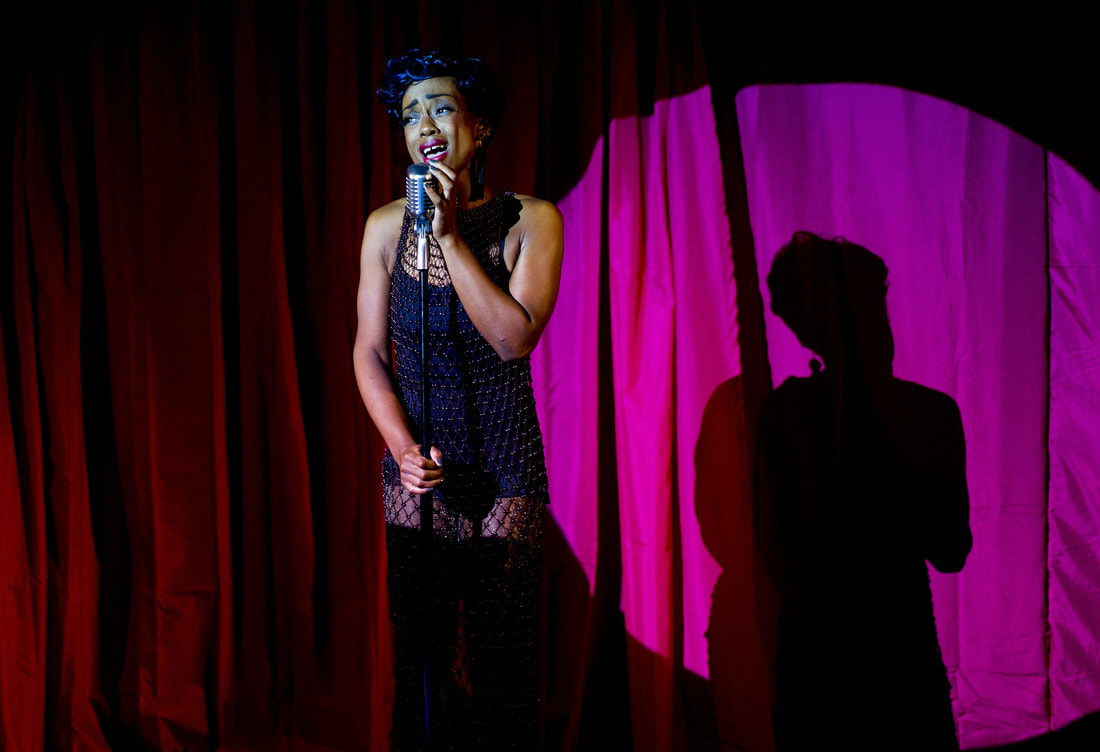|
Cashae Monya in "Cabaret." Photo by Daren Scott Cabaret is the ultimate in ironical musical theater. In spite of what the title tune suggests, life is NOT a cabaret, old chum. The raucous fun and bawdy music of the Kit Kat Klub are fronts for pain and sadness and fear.
These dark predilections make Cabaret – this 1998, the one revived by director Sam Mendes – an ideal fit for ion theatre’s tiny, shadowy space. In the course of a couple of hours’ time, ion’s production directed by Claudio Raygoza becomes the Kit Kat Klub of Berlin, circa 1931. Ion has even set up a few small cabaret tables among the regular loge seats for added atmosphere. This Cabaret is highly sexualized with its dancers, choreographed by the prodigious Michael Mizerany, and even its Sally Bowles (Cashae Monya) outfitted (by costume designer Keira McGee) in sartorial provocations seemingly on the verge of wardrobe malfunction. That’s half of the fun. The other half are the Kit Kat novelty songs (written by John Kander and Fred Ebb) that are played for sight-gag effect, like “Two Ladies,” “The Money Song” and “If You Could See Her Now,” the latter famously featuring a “gorilla.” The gender-bending cast is huge (for ion) with musicians doubling as actors, all of which enhances the devil-may-care spirit of the proceedings. Monya is to a substantial degree the best singer in the ensemble, though her British accent as Sally comes and goes. Drew Bradford wears a perpetual frown as Sally’s American suitor, Cliff, but he’s forgivably sincere. In the showcase role of the Emcee, Linda Libby shares duties with a ubiquitous (too ubiquitous) kazoo-playing boy (Scotty Atienza). Her Emcee visual antics aside, Libby is actually at her best during the piquant ballad “What Would You Do?” Morgan Carberry is notable as the wry prostitute Fraulein Kost and for her terrific keyboard work from the band area. (She’s also Cabaret’s musical director,) The shattered, or soon-to-be shattered, denizens of the Kit Kat Klub eat, drink and make merry (or make love, and lots of it) because they know that tomorrow promises a terrible inevitability. Cabaret will always be staged someplace sometime because of all the terrible tomorrows that followed as the Nazis rose to power. (Review originally published in San Diego CityBeat on 12/13/17.)
0 Comments
Leave a Reply. |
AuthorDavid L. Coddon is a Southern California theater critic. Archives
July 2024
Categories |
David Coddon |
|
